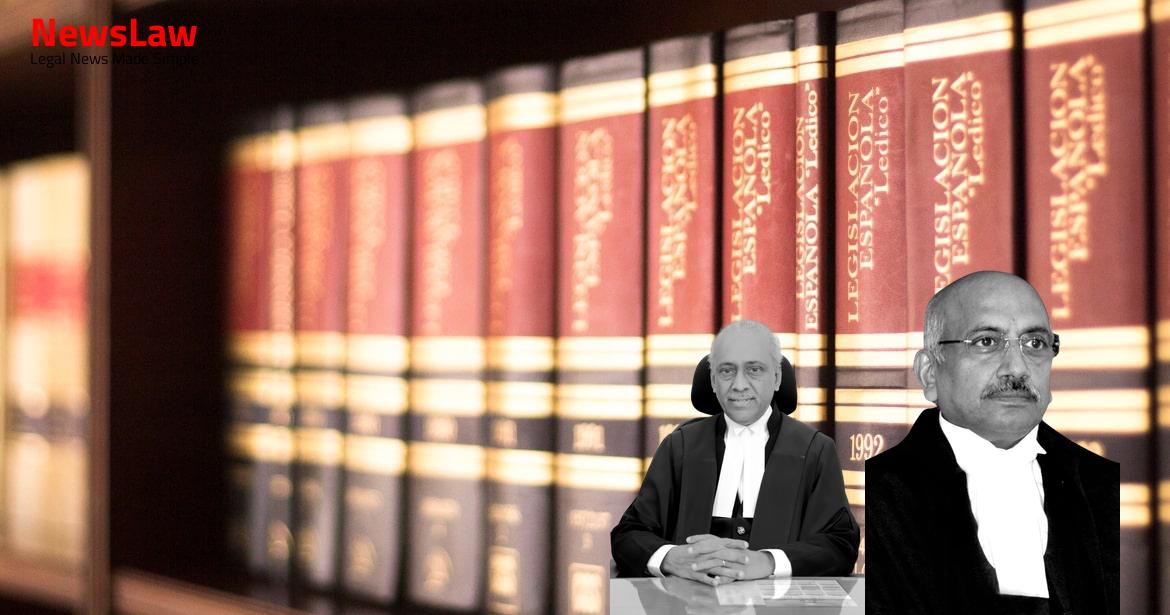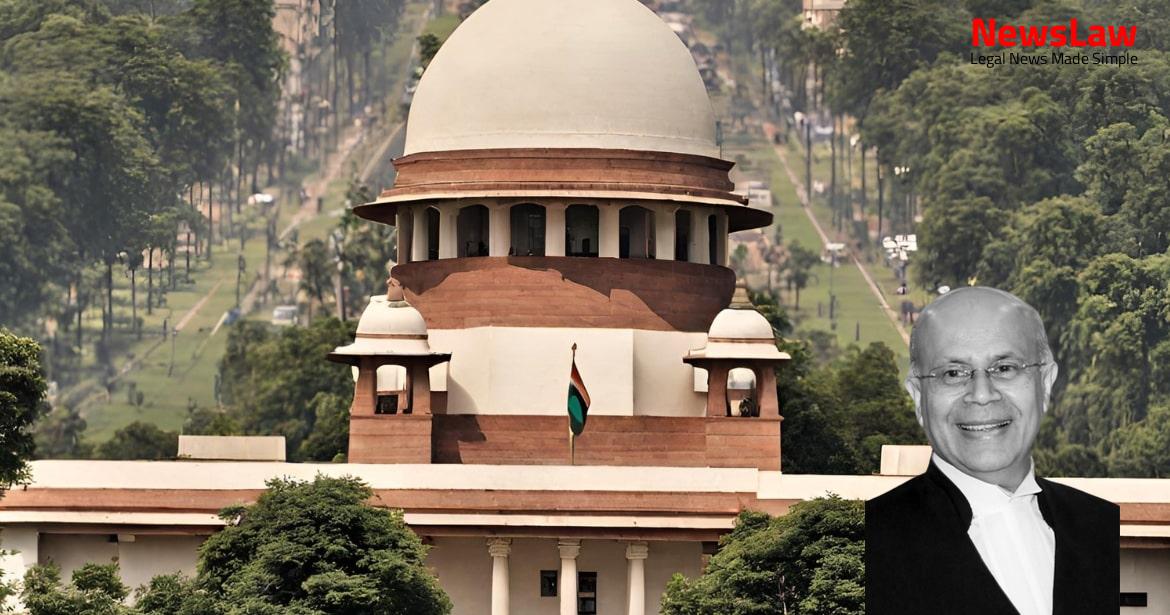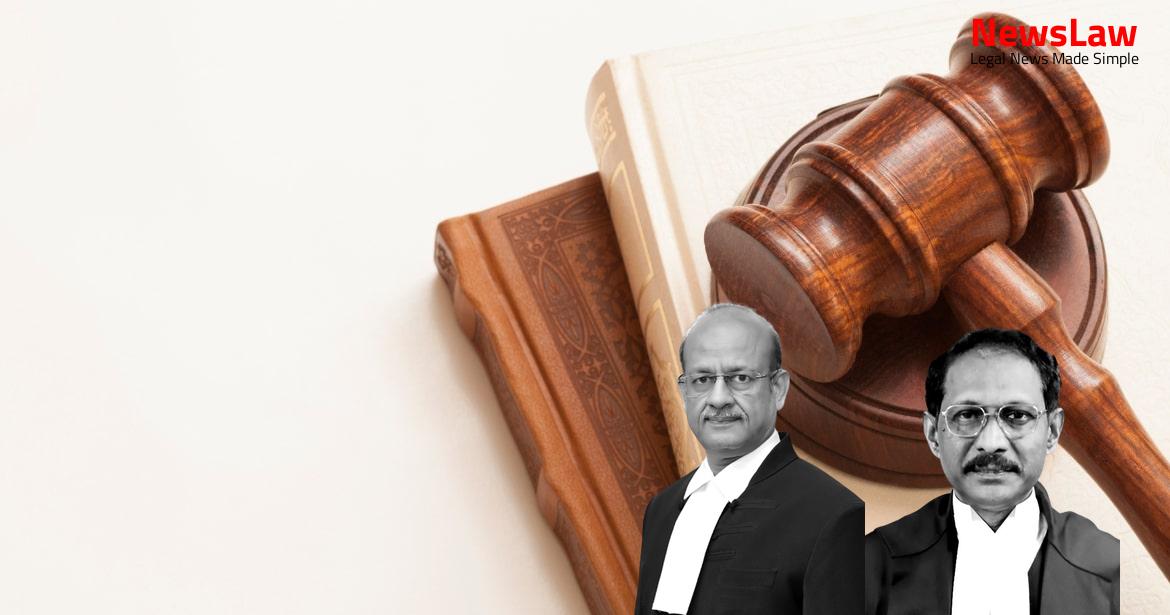In a recent legal case, the High Court analyzed stamp duty provisions, specifically focusing on the interpretation of Article 45(f) of the Act. The court’s detailed analysis shed light on the conditions required for invoking the provision and clarified the applicability of relevant notifications. This case serves as a significant milestone in the realm of stamp duty law and provides valuable guidance on interpreting complex legal provisions.
Facts
- An audit objection was raised by the Office of the Accountant General regarding a reference to a Power of Attorney in the deed of assignment.
- Deputy Collector referred the matter to the Chief Controlling Revenue Authority, who issued a notice to the appellant.
- Chief Controlling Revenue Authority set aside the previous adjudication order and directed recovery of deficit stamp duty after considering the reply from the appellant.
- Appellant submitted an application under Section 54(1)(a) of the Act in response to the order.
- Assignment Agreement was registered with the Sub-Registrar in Bharuch on 18.11.2008, following an adjudication under Section 31 of the Act.
- A demand for deficit stamp duty of Rs. 23,53,800/- was raised based on the audit objection.
Also Read: Undisclosed Conviction for Dharna Under Police Act Leads to Overturned Election
Arguments
- The Full Bench of the High Court of Gujarat rendered an opinion in a Stamp Reference under Section 54(1)(a) of the Gujarat Stamp Act, 1958.
- The opinion was made by the Chief Controlling Revenue Authority of the State of Gujarat.
- The appellant in this case is the Asset Reconstruction Company (India) Ltd.
- The appeal has been filed challenging the opinion of the Full Bench of the High Court of Gujarat.
Also Read: Critical Analysis of Legal Principles in a High-Profile Criminal Case
Analysis
- The appellant presented a single document for registration, namely an ‘Assignment Agreement’ that included a PoA in Schedule 3.
- The duty chargeable under Article 20(a) for the deed of assignment was capped at Rs. 1,00,000/-.
- The Amendment Act 44 of 2016 exempted bank documents executed under Section 5(1) from stamp duty for asset reconstruction or securitization purposes.
- The High Court concluded that the appellant must pay stamp duty as per Article 45(f) due to the authority to sell immovable property in the PoA recitals.
- The instrument was not split by the Revenue despite a stamp duty reduction notification issued by the Government.
- The High Court disregarded the absence of an independent PoA instrument as the power of sale of secured assets derived from the Securitisation Act, not a separate PoA.
- Article 45(f) of Schedule I to Act is discussed.
- Two conditions must be satisfied for invoking Article 45(f).
- The conditions are: (i) the PoA should have been given for a consideration, and (ii) authorization to sell any immovable property should be included in the instrument.
- In the case at hand, the consideration was paid for the acquisition of financial assets, not for the PoA itself.
- The PoA draft was incidental to the deed of assignment.
- Accepting the deed of assignment as chargeable to duty under Article 20(a)
- Collection of duty on the deed of assignment under Article 20(a)
- Inability to subject the same instrument to duty again under Article 45(f)
- Applicability of notifications under Section 9(a)
- High Court’s order focused solely on interpretation of Article 45(f)
- Lack of consideration of other relevant issues in the impugned order
- Unsustainability of the High Court’s decision
Also Read: Legal Analysis on Specific Performance Obligations in Land Sale Agreement
Decision
- The Chief Controlling Revenue Authority’s demand is set aside.
- No order as to costs.
- The appeal is allowed.
- The impugned order is set aside.
Case Title: ASSET RECONSTRUCTION CO. (INDIA) LTD. Vs. CHIEF CONTROLLING REVENUE AUTHORITY (2022 INSC 477)
Case Number: C.A. No.-003070-003070 / 2022



